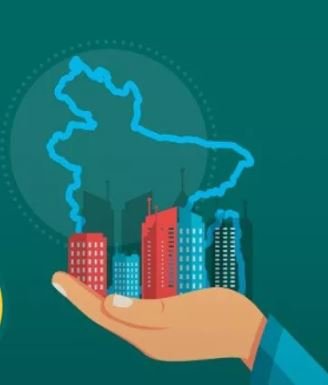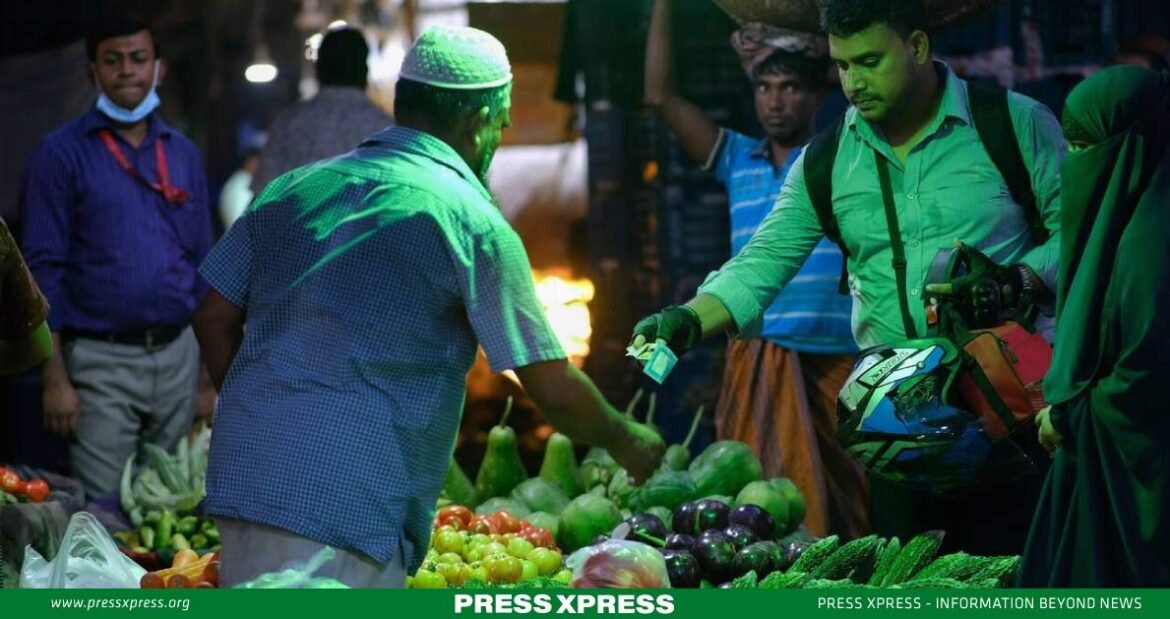Rising food prices are a global concern. No matter which country one lives in, higher food inflation has always affected every country. Food security is a very serious issue for developing countries as they have to fight a lot of economic crises.
The latest report of the World Bank’s (WB) Food Security Update has expressed concern over the rising food prices of Bangladesh in high inflation throughout 2023. The report states the deepening public struggle to cover the living costs amid deteriorating wages.
Inflation is a rise in prices, at which purchasing power drops can be reflected in the average price increase of a basket of selected goods and services over some time. And with the consistent strategic approaches aligned by the Awami League government has helped Bangladesh to deal with the increasing inflation on the steam.
Increasing Food Production
The Food and Agriculture Organization of the United Nations (FAO) has given a prediction on Bangladesh that the country will produce a record number of cereals including rice. The report titled Global Information and Early Warning System on Food and Agriculture has made such predictions. The report was released on November 10, 2023.
Food inflation rose 12.4% between September 2022 and September 2023, the highest in the last 12 years. FAO believes that 793 thousand tons of food grains could be produced in 2023 compared to 2022. Of this, Boro may set a new record in paddy production, 3 crore 10 lakh tons. As a result, food grains will have to be imported less overall. However, due to the high price of food products, the ability of a large number of people in the country to buy food products is decreasing.
AL’s Price Control Legacy
The Awami League (AL) has built a lasting reputation for implementing policies aimed at controlling commodity prices and protecting consumer interests. Since the 1990s, the party has embraced a market-oriented and liberalized trade approach, opening the economy to foreign competition and investment. This strategy has significantly contributed to Bangladesh’s impressive economic growth and poverty reduction over the past three decades.
Utilizing an array of tools, the party has effectively exercised price control, employing subsidies, tariffs, taxes, quotas, and regulations to influence the supply and demand dynamics of commodities in the domestic market. Notably, the government has subsidized essential items like rice, wheat, sugar, and edible oil to benefit the impoverished and vulnerable segments of society. To further enhance affordability and accessibility, duties and taxes on importing these commodities have been reduced or eliminated.
In addition, the government has implemented strict measures, including penalties, against hoarding, profiteering, and adulteration of commodities. These efforts are designed to prevent market manipulation and ensure the promotion of fair trade practices in the country.
Trials of Ukraine and Pandemic Crisis
The Awami League’s attempts to control commodity prices in Bangladesh have faced challenges due to external shocks from the Ukraine war and the COVID-19 pandemic. These global events disrupted supply chains and trade, leading to a surge in international commodity prices, particularly oil and food. The Ukraine war significantly damaged Ukraine’s infrastructure and production capabilities, affecting global wheat, corn, and sunflower oil exports. Economic sanctions resulting from the conflict impacted international trade.
The COVID-19 pandemic, starting in 2020, further exacerbated economic challenges globally. Lockdowns and travel restrictions hindered the movement of goods and people, impacting income and purchasing power, especially in developing countries like Bangladesh. Despite these challenges, the Bangladeshi government has successfully managed inflation, currently at 6.17%, the highest since October 2020. Food inflation is at 6.58%, driven by rising prices of edible oil, sugar, and eggs, among others.
To stabilize commodity prices, the government has implemented measures such as importing essential goods from diverse sources, providing subsidies to low-income groups, reducing tariffs on essential imports, simplifying import procedures, and strengthening market monitoring to prevent hoarding and ensure fair trade practices. The objective is to make commodities more affordable for the population and counter the impact of external shocks on inflation and import bills.
TCB, the Savior
The Trading Corporation of Bangladesh (TCB) is an autonomous organization under the Ministry of Commerce of Bangladesh. It was established on January 1, 1972. The main mission of TCB is to maintain a buffer stock of some selected essential commodities and sell them to stabilize the market price.
The current chairman of TCB is Brigadier General Md. Ariful Hassan, PSC. TCB was established to tackle the shortage of food and resources in Bangladesh following the Bangladesh Liberation War in 1971. It started its operation through the import and export of essential commodities and many other products.
At present, TCB is selling products to the marginalized population of the country at affordable prices throughout the year, which helps to keep the prices stable and reduces the living expenses of low-income citizens turning itself into a savior of millions. It plays an important role in achieving the country’s growth and improving the quality of life, including poverty alleviation.
Soybean oil, lentils, sugar, grams, onions, dates, rice bran oil, and other products are to be sold at stable prices to maintain the stability of the TCB market. Imported from abroad and sold in the market under government guidance.
TCB has made a significant contribution to ensuring food security, achieving the country’s economic growth, and building a hunger and poverty-free Bangladesh. The authorized capital of TCB has been increased from BDT 05 (Five) crore to BDT 1000 (One thousand) crore.
Earlier in March of 2023 the Trading Corporation of Bangladesh (TCB) started to provide goods not only by trucks but also by different shops. The consumers got the facility to collect food at reasonable prices from their areas.
Economic Surge Towards Resilience
Bangladesh is on track to become the 24th largest global economy by 2036, according to the Centre for Economics and Business Research (CEBR) World Economic League Table (WELT 2022) report. The nation’s rapid economic growth, substantial foreign investments, and increasing demand for ready-made garments contribute to this projected rise. The forecast places Bangladesh at the 41st position in 2022, with an anticipated climb to the 34th spot by 2026 and eventually reaching the 24th position in 2036.
Trend of Global Economy Ranking By:
2022 41th
2026 34th
2036 24th

Despite challenges posed by the COVID-19 pandemic, Bangladesh’s economy expanded by 3.5% in 2020, attributed to strong remittance inflows and a rebound in exports. The report acknowledges the country’s success in attracting foreign investments, particularly in the telecommunications industry, driven by a skilled workforce in information and communication technology. However, it highlights challenges such as diversifying exports beyond ready-made garments, adopting sustainable production processes, and addressing infrastructural gaps.
In a June 2023 report, Bangladesh is identified as the fastest-growing economy in the Asia-Pacific region, leading among 32 countries in the 10-year compound annual growth rate (CAGR) of its gross domestic product (GDP). While some view this optimistically, questions about the report’s credibility persist. If reliable, Bangladesh could potentially surpass Poland, Taiwan, and Vietnam within a decade.
According to the Mastercard Economics Institute’s annual economic outlook, Bangladesh is projected to be the second fastest-growing economy among 46 countries in 2024, with real GDP growth of 6.3%. However, this falls below the government’s target of 7.5% for the fiscal year 2023-24. The report also predicts a 7.3% consumer price inflation for Bangladesh in 2024, making it the fourth highest among 48 countries and the highest in South Asia.
Bangladesh’s economic statistics serve as a global role model, maintaining consistent growth even during global turmoil and crises has made the country invincible. The nation’s resilience is attributed to visionary leadership, notably Prime Minister Sheikh Hasina, and prudent policies implemented by the Awami League, securing a landslide reelection and indicating public confidence in the party’s stewardship.


